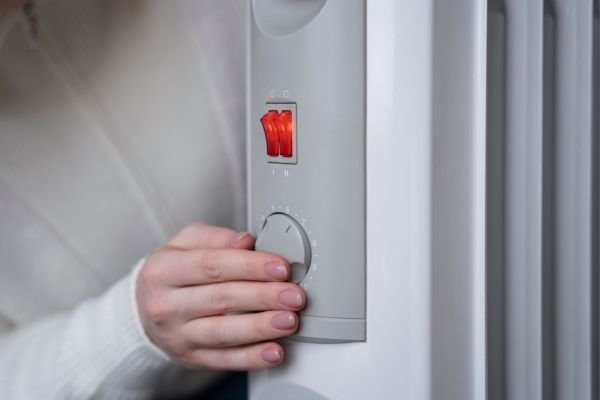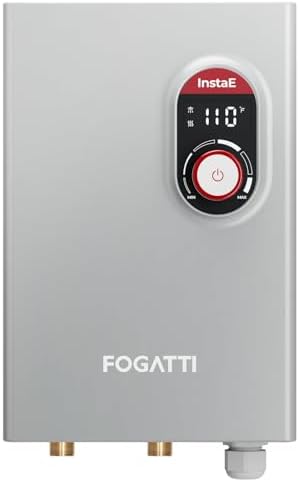Understanding How a Water Heater Works
Before answering whether it’s safe to turn off water to your water heater, it’s important to understand how the appliance actually works. Most residential water heaters operate on a fairly straightforward principle: cold water enters the tank, the heater warms it (either through gas burners or electric heating elements), and hot water is then supplied throughout the house as needed.
Here are the key components of a traditional tank-style water heater:
- Cold Water Inlet Valve – This is the shut-off valve that controls whether water flows into the heater. It’s usually located above the unit on the cold-water pipe.
- Tank – Stores the cold water that will be heated and keeps hot water ready for use.
- Heating System – Either a gas burner at the bottom of the tank or an electric element inside the tank heats the water.
- Thermostat – Controls the temperature of the water, ensuring it doesn’t get too hot or stay too cold.
- Hot Water Outlet – Carries the heated water to your faucets, showerheads, and appliances.
The cold water supply is essential to the proper functioning of the heater. Without it, the unit could attempt to heat an empty tank, which can be very dangerous especially for electric models, where heating elements can burn out quickly.
That said, water supply isn’t always needed all the time. If you’re not using hot water for an extended period, shutting off the water flow can actually protect your home from potential leaks. The key is knowing when to shut it off and when it’s better to leave it running.
Is It Safe to Turn Off Water to a Water Heater?
Now to the central question: Is it safe to turn off water to a water heater? The answer is yes,under the right conditions. Turning off the cold water supply to your water heater won’t harm the appliance if you do it correctly. In fact, it can sometimes be the safest option for your home.
Here are some important points to consider:
- Shutting Off the Water Supply Prevents Leaks
Water heaters, like any plumbing appliance, can develop leaks over time. If a leak occurs while you’re away from home, it could cause extensive water damage. Turning off the supply prevents water from continuously feeding into the tank in case of a leak. - It Protects Against Flooding During Emergencies
If your tank is rusted or close to failing, having the water supply on could mean gallons of water spilling out into your basement or utility room. Cutting off the supply in such situations buys you time to fix the problem without catastrophic damage. - It Won’t Damage the Heater—As Long as Power/Gas is Managed
The key is ensuring that the heater isn’t running while it doesn’t have water. For an electric heater, you must turn off the breaker to prevent the elements from burning out. For a gas heater, you can set the control to “pilot” or “vacation” mode.
In short, it is safe to turn off water to your water heater as long as you take the extra precaution of managing its energy source.

READ MORE: Should You Turn Off Your Water Heater When Water Is Off?
Common Scenarios When You Should Turn Off Water Supply
There are several situations where shutting off the water supply to your heater isn’t just safe, it’s highly recommended. Let’s look at the most common cases:
- Going on Vacation or Extended Absence
If you are leaving your home for more than two days, it is a good idea to shut down the water supply. Why? Because even a small leak can turn into a disaster when left unattainable for days or weeks. Imagine coming home from just a rest holiday to find a flood in your basement. This happens more often than you can think. With the water off, set the heater on “vacation mode” or turn off the power to avoid unnecessary energy waste. - Performing Maintenance or Repairs
Anytime you need to drain your tank, replace parts, or conduct any plumbing work near the heater, shutting off the water supply is non-negotiable. It ensures you don’t have water unexpectedly rushing out while you’re working. - Emergency Leaks and Flood Prevention
If you notice water pooling around your heater, see signs of rust, or hear noise, it is the safest to close both water and power supply immediately. This helps prevent damage and purchases time to call you the plumber.
In all these scenarios, shutting off the water isn’t just safe, it’s the smartest choice you can make to protect your home and reduce risk.
When You Should NOT Turn Off Water to a Water Heater
While turning off the water supply is useful in many cases, there are times when it’s unnecessary or even counterproductive. For instance:
- Short Absences (a Day or Two)
If you’re just leaving home overnight or for a weekend, shutting off the water supply isn’t usually necessary. The risk of leaks in such a short window is minimal, and leaving the system running avoids the hassle of restarting everything when you return. - When the Unit is Actively Heating Water
Never shut off the water supply while your heater is in the middle of heating. This can cause overheating, especially if the tank becomes empty. Always shut off the power or gas first. - Improper Shut-Off Risks
If you shut off the water supply but forget to cut power to an electric heater, the heating element may burn out. For gas heaters, shutting off the water without adjusting the thermostat can waste energy or even cause overheating.
The bottom line: You don’t need to shut off the water supply for everyday use or short absences, but you should for long absences, maintenance, or emergencies.
How to Safely Turn Off Water to a Water Heater
If you’ve decided that shutting off the water supply to your heater is the right move, it’s important to do it correctly. An improper shut-off can cause more harm than good, especially if the heater continues running without water. Here’s a safe, step-by-step method to follow:
Step 1: Locate the Cold Water Shut-Off Valve
The shut-off valve is usually found on the cold water pipe entering the top of the water heater. This valve may be a ball valve (a lever you turn 90 degrees) or a gate valve (a round knob you twist clockwise). Turning this off stops water from flowing into the tank.
Step 2: Cut Off the Power or Gas Supply
- For Electric Heaters: Go to your breaker panel and switch off the breaker connected to the water heater. This prevents the heating elements from running while the tank is empty.
- For Gas Heaters: Turn the thermostat to the “Pilot” or “Vacation” setting if you’ll be away temporarily. If you’re performing maintenance, it’s best to turn the gas control knob to “Off” completely.
Step 3: Consider Draining the Tank (If Needed)
If you’re shutting off the heater for maintenance or an extended absence, draining the tank can prevent sediment buildup and protect the heater. Simply attach a hose to the drain valve at the bottom of the tank and let the water flow out into a floor drain or outdoors.
Step 4: Double-Check for Safety
Before leaving your home or beginning work, make sure both the water and energy sources are securely off. This ensures no accidents happen while the system is inactive.
By following these steps, you can safely shut down your water heater without risking damage to the unit or your home.
READ MORE: How to Remove Sulfur Smell from Hot Water Heater
Pros and Cons of Turning Off Water to a Water Heater
Like any decision regarding your home, shutting off the water supply to your heater has both advantages and disadvantages. Understanding these can help you make the best choice depending on your situation.
Pros
- Prevents Flood Damage – If your heater develops a leak, shutting off the water stops gallons of water from flooding your basement.
- Saves Energy – When paired with turning off gas or electricity, it prevents unnecessary energy consumption while you’re away.
- Protects Against Emergencies – If a pipe bursts while you’re gone, having the water supply off can save you from costly repairs.
Cons
- Inconvenience – Shutting off the water means you’ll need to restart the system when you return, which can take time.
- Potential Heating Risks – If the power isn’t shut off properly, the heater could run dry and damage components.
- Not Always Necessary – For short absences, shutting off the water is more effort than benefit.
A simple way to look at it: if you’re leaving for more than a couple of days, it’s worth shutting off the supply. If not, leaving it on is usually safe.
Tips for Managing Your Water Heater While Away from Home
Vacations and extended absences often raise the question of what to do with your water heater. Here are some practical tips to keep in mind:
- Use Vacation Mode (If Available)
Many modern gas water heaters have a “vacation mode” setting, which keeps the pilot light on but lowers the temperature significantly. This saves energy while preventing the system from completely shutting down. - Turn Off Power for Electric Models
Electric heaters don’t have a vacation mode, but switching them off at the breaker prevents energy waste and protects against overheating. - Drain the Tank If Gone for Months
If you’re leaving for an extended time (several months or longer), consider draining the water heater. This prevents corrosion and sediment buildup while also reducing the risk of leaks. - Shut Off Main Water Supply for Added Safety
For maximum protection, many homeowners shut off the main water supply to the house while away. This ensures that even if a pipe bursts, no water will flow into your home.
By taking these steps, you can enjoy peace of mind while you’re away, knowing your water heater won’t cause problems in your absence.
The Role of Electricity and Gas in Shutting Off the Water Heater
Shutting off the water supply is only half the equation—you also need to manage the energy source. Here’s why:
- Electric Water Heaters
If the heating element is exposed without water around it, it can overheat and burn out within minutes. That’s why turning off the breaker is absolutely necessary anytime you shut off the water. - Gas Water Heaters
These are a little more forgiving, but they can still waste fuel and cause overheating if left on without water. Using the “pilot” or “vacation” mode is ideal for short absences, while turning the gas completely off is better for maintenance or emergencies.
A simple rule of thumb: Whenever the water supply is shut off, the energy supply should be too.
READ MORE: Does a Gas Water Heater Need Electricity?
Potential Risks of Not Turning Off Water to a Water Heater
Leaving the water supply on to your water heater at all times might seem convenient, but it does carry certain risks. Many homeowners don’t realize that their water heater holds anywhere from 30 to 80 gallons of water in the tank at once. That’s a lot of water, and if something goes wrong, it can cause serious damage.
1. Risk of Flooding
If a pipe bursts or the tank develops a leak, the constant flow of water will continue to feed into the heater. Over time, this can flood your basement, garage, or utility room. Repairing water damage often costs thousands of dollars not to mention the loss of personal belongings stored nearby.
2. Increased Pressure on Plumbing
When the heater is always associated with a living water supply, the plumbing system is under constant pressure. It makes more unsafe for cracks, leaks and unexpected bursts, especially in old pipes.
3. Sediment Buildup
Constant water supply means continuous contact for minerals and sediment found in your water. Over time, they reside at the bottom of the tank, reduce efficiency and shorten the life span of the unit.
4. Silent Leaks That Go Unnoticed
Sometimes leaks don’t happen suddenly they start small. A drip here, a trickle there. If the water supply is always on, these minor leaks can continue unnoticed for weeks, slowly damaging floors, walls, or insulation before you even realize there’s a problem.
The takeaway is simple: while leaving the water on is convenient, it comes with risks that can be avoided by shutting it off during absences or maintenance.
How Long Can You Safely Leave a Water Heater Off?
If you’re shutting down your water heater, you may wonder how long it’s safe to leave it that way. The answer depends on your situation and how you prepare the heater before turning it off.
- For Short Absences (up to a week):
It’s perfectly safe to shut off the water and power supply. When you return, it may take 30–60 minutes for the water to heat back up. - For Longer Absences (several weeks to months):
You should consider draining the tank completely. This not only prevents leaks but also stops stagnant water from causing corrosion or bacteria growth inside the tank. - For Seasonal Homes or Properties:
If the property is vacant for months at a time, it’s best to drain the water heater and shut off both water and energy sources. This ensures the system remains safe while you’re away.
The good news is that modern water heaters are built to handle being turned off and restarted. With proper precautions, you won’t cause any harm to the unit by leaving it off for weeks or even months.
READ MORE: How Often to Flush a Water Heater
Expert Opinions on Shutting Off Water Supply
Plumbers and HVAC experts often recommend shutting off the water supply under certain circumstances. Here’s what many professionals agree on:
- During Extended Absences: Experts recommend shutting off both the water supply and the energy source. This reduces the risk of leaks and saves energy.
- For Emergency Situations: If you notice even a small leak, shut off the water supply immediately. The longer water continues to flow, the more damage it causes.
- For Routine Use: Most plumbers agree that you don’t need to shut off the water for daily life or short trips. Doing so repeatedly without need may create unnecessary wear on valves.
In other words, professionals view water shut-off as a protective measure—something to use strategically when circumstances call for it.
Best Practices for Maintaining Your Water Heater
Your water heater will last longer and operate more efficiently if you follow a few key maintenance practices. Whether or not you shut off the water, these habits will keep your system in top condition:
- Drain and Flush the Tank Annually
This removes sediment buildup that reduces efficiency and increases the risk of leaks. - Check the Anode Rod
This rod prevents corrosion inside the tank. Replacing it every 3–5 years can add years to your heater’s lifespan. - Test the Pressure Relief Valve
Lift the lever on the valve once a year to ensure it’s working properly. This safety feature prevents excessive pressure buildup. - Insulate the Tank and Pipes
Wrapping the heater in an insulation blanket helps retain heat and reduces energy bills. Insulating pipes prevents heat loss as water travels through your home. - Inspect for Leaks Regularly
A quick visual inspection around the heater can help you catch small leaks before they become major issues.
These simple steps not only extend the life of your water heater but also reduce the chances of sudden failures that might force you to shut off the water unexpectedly.
Conclusion
So, is it safe to turn off water to a water heater? Yes, it’s not only safe but often smart. Shutting off the water supply can protect your home from leaks, flooding, and other potential damage, especially if you’re leaving for an extended period, performing maintenance, or handling an emergency.
That said, it’s not always necessary. For low absence or daily use, except for water supply is fine. The key is knowing when and how to close it safely, always combine the water shut-offs with a closure of electricity or gas supply.
By understanding the needs of your water heater and following the best practices, you can expand its life, save energy, and avoid expensive damage to your home.
FAQs
1. Should I turn off the water heater if I go on vacation?
Yes, if you’re gone for more than a few days, it’s a good idea to shut off both the water and power supply to prevent leaks and save energy.
2. Can shutting off water damage my water heater?
No, shutting off the water won’t damage the heateras long as you also turn off the power or set the gas control to “pilot” or “vacation” mode.
3. How long does it take a water heater to reheat after being turned off?
Most water heaters take 30–60 minutes to reheat a full tank of water, depending on the size of the tank and energy source.
4. Should I drain my water heater if I’m leaving for months?
Yes, draining the tank helps prevent corrosion, bacteria growth, and leaks when the heater will remain unused for long periods.
5. Where is the shut-off valve for my water heater located?
The valve is typically located on the cold water pipe entering the top of the unit. It may be a lever (ball valve) or a round knob (gate valve).






